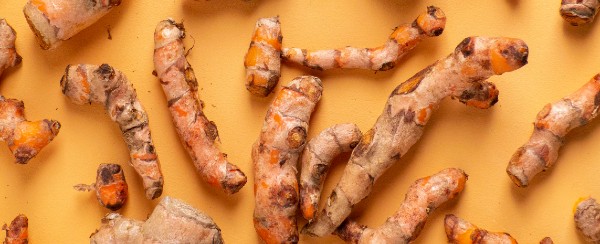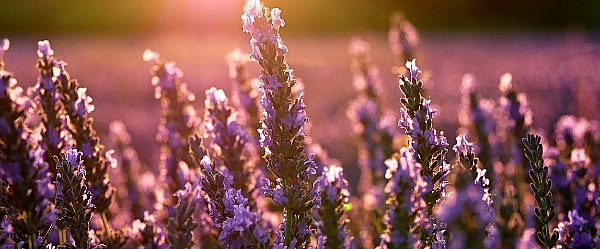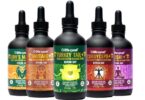For centuries, different cultures around the world have had their traditional and herbal treatments for everyday ailments. Though big pharmaceutical companies want you to believe that herbal remedies don’t work, the truth is actually quite different.Â
In my opinion, the entire concept of pharmaceutical drugs is flawed, in the sense that for most problems, medication treats only the symptoms and not the actual disorder. For instance, if you have a headache, every doctor will tell you to take a painkiller, while nobody will try and figure out why you have a headache.
However, despite all the advancements in modern medicine, the global demand for herbal remedies is still on the rise. People want to avoid the side-effects of pharmaceutical remedies, and sometimes herbal medicines are also more affordable. According to the numbers, the herbal medicine industry grosses an estimated $60 billion annually.
Echinacea
Echinacea, or as it is more commonly known, coneflower, is a flowering plant that originates from North America and is popularly used as a herbal remedy. Native Americans used it to treat a lot of medical problems.Â
It was topically applied on burns and wounds. People used it to gain relief from toothaches, and it helped with some stomach problems as well.Â
Though most parts of this plant are used for medicinal purposes, it is believed that the roots have a stronger effect than the leaves and petals.Â
Echinacea is mostly taken as a tea or a dietary supplement, but it can also be applied topically on wounds and burns.
Gingko
Gingko is one of the oldest plants on the planet, and it has been used in homeopathic treatments for centuries. Gingko is a very important plant in Chinese medicine, and its leaves are used to make capsules and tablets as well. However, traditionally, it was consumed as a tea. Â
Ginkgo has several benefits; however, it is best known for its ability to boost brain health. Studies have indicated that Gingko can be effective in treating mild depression, and it can slow down cognitive decline in people suffering from mental deterioration disorders like dementia.Â
Turmeric

Turmeric is most commonly used as an antiseptic and anti-inflammatory. It is used to treat wounds and can help in relieving joint pain and joint inflammation as well. According to some research, turmeric can also be used to treat skin disorders as well.Â
Turmeric is believed to have anti-cancer properties as well, and it can help in the prevention of DNA mutations.
Evening Primrose Oil
The yellow and vibrant primrose flower is another plant that is used as a herbal remedy. The flower produces oil, which has been linked with several medical benefits.Â
It is believed that Evening primrose oil can help in the treatment of skin conditions like eczema, and it can also alleviate the symptoms of PMS.Â
Furthermore, some studies have shown that evening primrose oil can also have anti-inflammatory properties. It helps with conditions such as diabetic neuropathy and atopic dermatitis. Some studies also show that evening primrose oil can help in the treatment of breast pain. Â
Another recent research suggested that primrose oil can improve the quality of life for people who are dealing with multiple sclerosis.
Chamomile
Chamomile is a popular medicinal plant that is praised because of its anti-anxiety effects. With flowers that look like small daisies, this beautiful plant is a very popular tea flavor, with sources saying that over 1 million cups of chamomile tea are consumed every day.Â
Though tea is the most popular way to use chamomile, you can also use it in capsules and tablets.
Unlike some other herbal remedies, the effects of chamomile have been studied frequently. In fact, according to a study from 2009, chamomile was significantly more effective in reducing symptoms of anxiety as compared to a placebo.Â
Another study proved that chamomile is safe for long-term use, and it shows potential in anti-cancer treatments as well.
Lavender

For instance, a recent study confirmed that the scent of lavender could directly impact a person’s mood while improving their cognitive performance as well. Another study recommends the use of lavender essential oils and aromatherapy through lavender to improve your sleep quality and duration.Â
A recent study also discovered that lavender has strong anti-inflammatory properties, and its oil can even be applied topically.Â
Cannabis:
When it comes to cannabis, you will probably find two extreme schools of thought. One side views cannabis as some miracle drug, which is the solution to every problem on earth, while the other claims that cannabis is some extremely dangerous drug that ruins lives.
The truth is that neither of these people is right. The truth lies somewhere in between. Where cannabis does have strong euphoric effects on a person’s mind, it has several proven medical benefits as well.Â
Cannabis can relieve stress, help in dealing with anxiety and depression, provide pain relief, and some strains are even known to improve creativity and energy levels. Furthermore, studies have shown that cannabis can act as an anti-inflammatory substance, and it can decrease the side-effects of cancer treatment as well.








